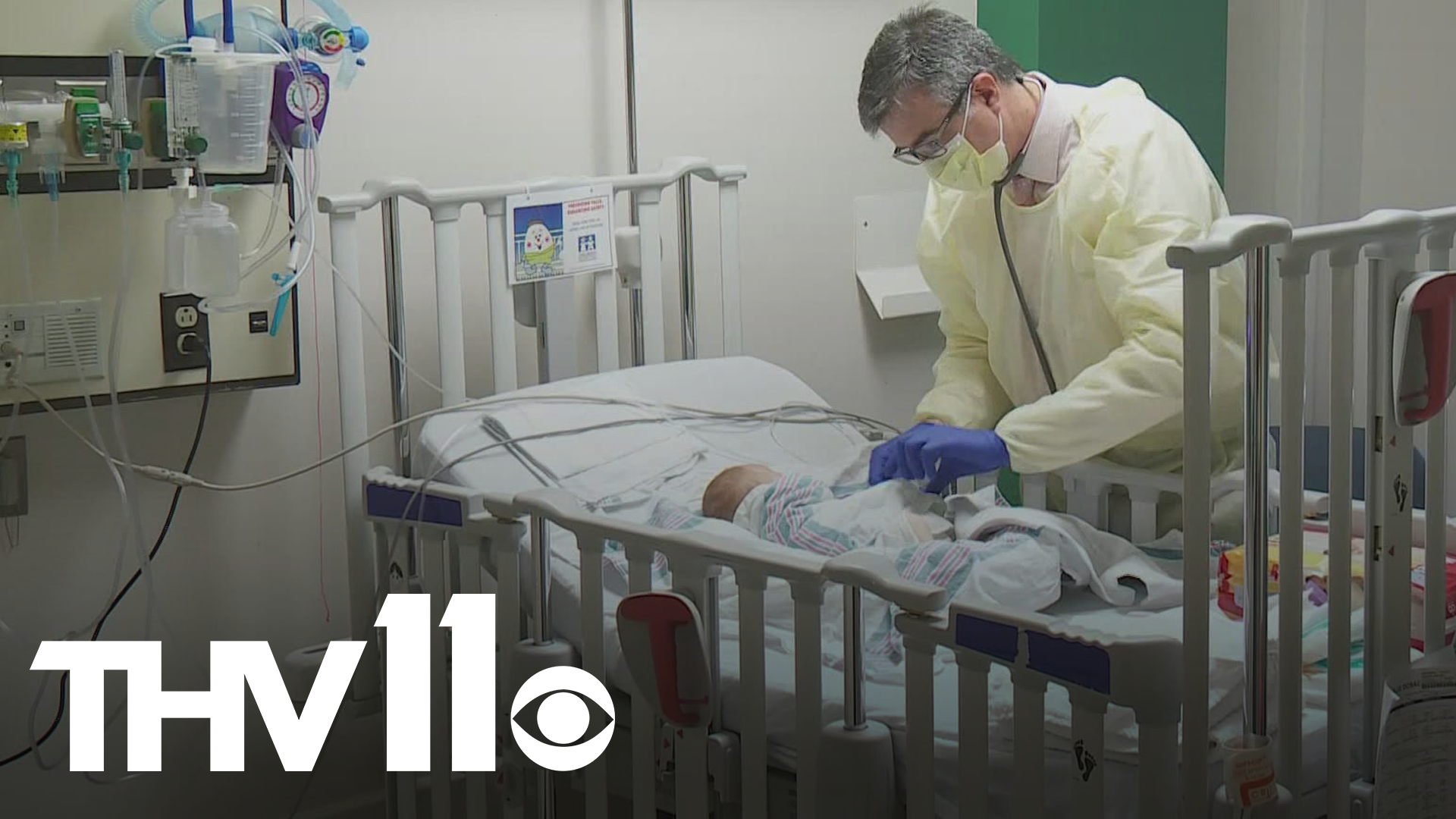LITTLE ROCK, Ark. — If you've got kids, you know what RSV stands for.
"RSV stands for Respiratory Syncytial Virus," Dr. Jennifer Dillaha, the Arkansas Department of Health's Director of Immunizations, said. "It's very common, most children have been infected by it by the time they're two years of age."
If you're wondering why we're talking about this in June, rather than the fall when many RSV cases happen, you're not alone.
The Centers for Disease Control has data available to track RSV positive tests and shows that for the last week of May, Arkansas was sitting at roughly 8% of tests coming back positive.
For a month where that number is usually a lot lower, it's a surprise, but why are we seeing the increase to begin with?
"This last year or more, we have seen very little RSV in the community," Dr. Dillaha said. "Most likely because of the preventative measures we've been taking to prevent the spread of COVID-19."
Now that many of those measures are changing, when we see RSV is changing as well.
"People not wearing masks, it's no longer mandated, and people are getting vaccinated for COVID-19," Dr. Dillaha said. "They don't have to practice the social distancing that they were."
So while it may seem odd to talk about this during the summer months, Dr. Dillaha says parents shouldn't be worried.
"I would not be alarmed that we have an increase in RSV or other respiratory viruses at this time," she said. "That is inevitable with the decrease in masking and social distancing."
When it comes to preventing RSV, there's no surefire way to stop it.
But we can take a page from COVID-19's book on how to prevent it.
"There's ways to prevent ourselves from spreading it, and that is if we are sick, to stay home and not go to work for the parents or the adults," Dr. Dillaha said. "For children, they need to stay home from daycare or school if they're sick."

